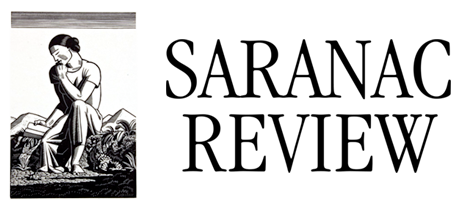
Distance
Andrew Bertaina
Sometimes he didn’t speak the truth with his graduate students. He wanted to tell them what they needed was some distance from the material they were writing about. It was a non-fiction class, so the distance they needed was from the events in their own lives. They needed critical distance, which would allow them to reflect and process the events they were breathlessly recounting in his class. He never would have said they needed objectivity, particularly when it came to difficult relationships or events, because everyone knew objectivity didn’t exist, even in science. He meant distance.
But then the question arose, how much distance did they need? Would a year suffice? Two years? Five? How much distance did you need from the events of your life before they started to come into sharper focus (if that’s what distance really did, bring things into sharper focus)? Now that he thought of it, distance probably didn’t do that. In fact, distance did the opposite. It blurred things. But maybe that blurring is what allowed the writer to reflect, i.e., think back on the event with enough distance to help them begin to understand it. Really, it wasn’t about the subject matter, but the ability of the writer to reflect on the subject.
Upon reflection though, he also told them essays were all about problems they hadn’t yet solved, which distinguished it from memoir. Questions they still had were the internal combustion engine of the essay. Something he said often enough for the students to parody him by the end of the semester, the “engine of the essay” they’d say, smiling slyly at him. So, wasn’t the advice he was giving them about distance causing the very problem he was trying to avoid? He didn’t think so. Because distance, now that he’d had time to reflect, didn’t really bring understanding, it brought bafflement. And bafflement was the proper condition with which to approach an essay. When a writer says, “what I didn’t know at fourteen but now know at thirty-five is…” all they are really saying is, time has passed. The insight was new, not truer.
And time, at least in his mind, was the only subject of literature. Speed it up, fracture it, elongate it. Time was the instrument, and the words were merely the strings. Although, now that he thought again, maybe that wasn’t true either, perhaps he’d given too much weight to time pedagogically.
In fact, maybe his whole argument about distance was wrong too. Or at the very least, a case of violent hypocrisy. Years ago, when he’d first started writing, hadn’t his goal been to close the distance between how he felt about life and how life was represented on the page? Hadn’t the whole goal of his practice been to pass through the morass of words and into the belly of the real? Wasn’t that the reason for his writing or at least his early writing praxis? No distance at all. The thing itself.
Maybe the students in his class had it right, writing themselves into narratives with very little distance, no warp and weft of time to pollute the real, just the thing itself, life, in all its inconsistencies, that’s what they were trying to capture. But still, he thought, after reading their essays, some distance might help them to achieve that.
For instance, even as he wrote, he was ignoring the questions of his own child at the table, who had been munching on chips, a child who wanted to share the particulars of his real day. But the writer wasn’t interested. What the child lacked, the writer thought, was the proper distance from the material, which made it impossible to make it interesting for anyone, save himself. Maybe that’s what all the distance in adult life was for, bridging that gap, between I and thou.
Andrew Bertaina is the author of the essay collection, The Body Is A Temporary Gathering Place (Autofocus 2024), and the short-story collection, One Person Away From You (Moon City Press Award Winner 2021). His work has appeared in The Threepenny Review, Prairie Schooner, Witness Magazine, Post Road, and elsewhere. His work has been anthologized in The Best American Poetry series and listed as notable in three editions of The Best American Essays. He has an MFA from American University and more of his work is available at andrewbertaina.com

